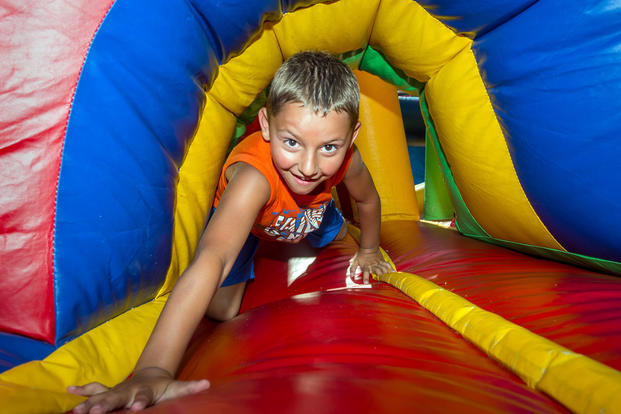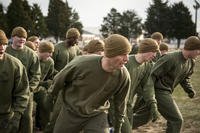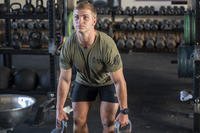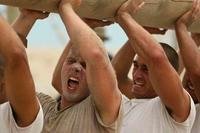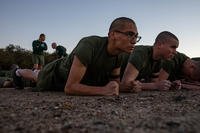As a follow-up article for children and teens at the other end of the spectrum, this article is geared toward athletes doing competitive sports travel teams or weeklong sports camps. Here are several tips to keep your highly active kids moving, recovered, well-fueled and hydrated over a busy summer. Take this seriously, because the number one thing we want to prevent is heatstroke. If you can rule that out with proper preparation, you can focus on athletic performance at optimal levels.
During the summer, pre-teens and teenagers alike often find themselves competing on an entirely new level of activity. During the school year, these athletes typically work out a few times a week and maybe play a game or two per week. But the summer heat and intensity often can become overwhelming if kids are not properly hydrated, fueled and physically prepared for 3-4 games in a day or a long weekend tournament.
These challenging weeks or weekends come in the form of athletic summer camps and travel sports teams, such as baseball, softball, soccer and lacrosse, to name a few. But there are also many weeklong camps that have kids moving through the day, in the heat and humidity, with several practices for multiple days. And the farther South you go for these sports camps, the more you have to prepare yourself now.
There are three things you need to concern yourself with when training for several hours a day in the heat and humidity:
-
Preparation, hydration and fueling days before the event.
-
Staying cool.
-
Snacks and meals during and after long days of training.
Days before weeklong camps or weekend tournaments, you need not only to work on your sports skills and conditioning, but also fuel properly before, during and after training events.
Pregame Eating
You need to think about each meal and how much water you consume as fuel for tomorrow's game. Skip a meal, don't eat your vegetables or fruits, or eat junk food, and you will feel sluggish during your game or at camp the next day. This means eating foods rich in nutrients like fruits, vegetables, good carbs, protein and fats. Some options for good carbs, proteins, and fats include the following.
Carbs – Primary Energy Source for Speed and Agility
Multigrain breads and pastas, sweet potatoes, brown rice, vegetables (green leafy lettuce, broccoli, asparagus, carrots) and fruits, (tomatoes, strawberries, apples, berries, oranges, grapes and bananas). Eliminate or limit soda and sugary drinks and replace them with water and unsweetened drinks if you can, or seriously limit them.
Protein Options
Meats, fish, chicken, eggs, nuts, almonds, beans, whey protein powder (optional) and peanut butter. I eat boiled eggs and salads between meals or have a few servings with a main course of meat or tuna fish for a good balance of plant and animal protein.
Fat Options
Fish, nuts, olive oils, omega-3 fortified products (milk, margarine, peanut butter). I typically get most of these fats from nuts and fish, but I also supplement the omega-3 pills to help with healthy recovery.
This type of eating should become a daily habit for a highly active teen. If you see unwanted weight loss, then you should eat more portions and add in more milk shakes and peanut butter sandwiches between meals.
Hydration Rule
Drink 50%-75% of your body weight (pounds) in ounces of water each day. So if you are a 150-pound person, you need at least 75-100 ounces of water a day.
Related article: ABD's of Nutrition
During prolonged activity in the heat, humidity or even arid environments, staying cool is king. And you do this by staying hydrated, soaking your head occasionally and finding cool places to recover, like shade, water and air conditioning.
Body Heat = Fatigue
It's important to remember that half of fatigue is body heat. Cooling off whenever you can will prolong your ability to keep playing. If you have time between games of a multi-game tournament, jump in a hotel swimming pool or get out of hot clothes and have ice-cold towels draped on your head, torso and feet.
During long days of intense activity, you have to continue to fuel and hydrate, and not just rely on breakfast, lunch and dinner. Over the years I have found a few tricks that keep me moving while training all day for several days.
Stay Hydrated – Don't Even Get Thirsty
Sip all day. If you're sweating profusely, add some Gatorade-type drink or consider a medical-grade hydration product called Drip Drop. You can do this throughout your game -- sip, don't chug. Stay on top of thirst but do not overfill your stomach with liquid while trying to run.
Having something with some sugar in it will help you as you push your physical limits during the game. Fruit juice, Gatorade, orange slices and bananas work as quick energy sources. Find what works best for you during your practices, not your games.
A good way to check if you are under-hydrated is to take a scale with you to the event and weigh yourself before and after a game or series of games. This will determine just how much you need to consume to get back to normal.
If needed, hydrate and cool yourself down first. Then eat, replenish electrolytes, stretch/foam roll and get a good night's sleep. Our best recovery tool is sleep.
This can be a tough schedule to keep during the summer for the serious athlete. Stay smart with your fuel, rest and hydration, and you will see marked improvement in your performance on the field.
Part of this drill is to find what works best for you. Take notes each practice, game and series of games on your performance. If you are doing well, the heat is not bothering you like it once did and you are feeling good before, during and after the games, then you might have found the right combination.
We all are different so find what works for you. Rinse and repeat until you have the desired outcome.
Stew Smith is a former Navy SEAL and fitness author certified as a Strength and Conditioning Specialist (CSCS) with the National Strength and Conditioning Association. Visit his Fitness eBook store if you're looking to start a workout program to create a healthy lifestyle. Send your fitness questions to stew@stewsmith.com.
Want to Learn More About Military Life?
Whether you're thinking of joining the military, looking for fitness and basic training tips, or keeping up with military life and benefits, Military.com has you covered. Subscribe to Military.com to have military news, updates and resources delivered directly to your inbox.
